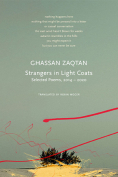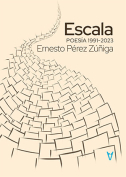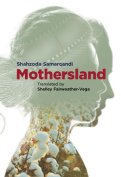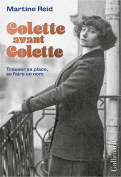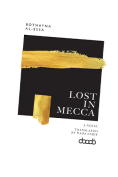The Morningside by Téa Obreht
 New York. Random House. 2024. 286 pages.
New York. Random House. 2024. 286 pages.
Téa Obreht’s great new novel is, in fact, a book about war refugees. However, told in first person and set up in the near future in a city that is reminiscent of New York, The Morningside starts as a climate-fiction text. Eleven-year-old Silvia and her mother come to the city “recruited from abroad by the federal Repopulation Program to move in and sway the balance against the total urban abandonment.” They join Silvia’s aunt Ena, who works as a custodian in the building that lends its name to the narrative. In an attempt to make sense of an absolute lack of family history, and to fight boredom and loneliness in the dying town (there is a two-year wait to be enrolled at school!), Silvia embraces Ena’s stories about her homeland and extends them to the sinking and stinking streets of the metropolis. In them, her birthplace is a paradise of family spirit and natural beauty, a perfect country she doesn’t remember because she left it as a baby.
One such story recalls “Building of Skadar,” the twelfth-century epic poem about raising a city that requires a human sacrifice: in order to appease a vila, a capricious South Slavic fairy similar to a nymph, a mother is built into the fortress walls from where she nurses her infant son for two years. Her milk never dries out, not even after she dies and the son grows up. (Nowadays, women still come to the old Skadar fortress in contemporary Albania in hopes of being helped with their milk supply, though, according to scientists, the ever-flowing milk between the stone blocks is a deposit of calcite.) The mother is tricked into a sacrifice because only the youngest of the three brothers does not reveal to his bride the promise given to the vila; the wife who comes first to the fortress with the workers’ food will be built into it. The poem is one of the most emotional Serbian epic poems; Jacob Grimm was so moved by it that he translated it into German, while Goethe published it in 1825.
Obreht references the epic poem as a frame narrative whose function is revealed late in the novel, when Silvia learns that her father’s fate is similar to those of the Srebrenica victims in the Yugoslav civil war, while her move to the new country is rather a survival struggle. The poem functions as a cynical rationalization of the war and horrifying past—the fine line between mythology and history, Obreht suggests, will continue to be obscured, even into the dystopian future.
Similar to her previous novels, Tiger’s Wife and Inland, the Yugoslavia-born Obreht references folklore and peppers the narrative with nonitalicized words that come from her mother tongue (e.g., Modra Gora, vila), making her lyrical and contemplative style somewhat mysterious to English speakers. Bilingual speakers chuckle, for sure, when they read that the characters come from Back Home or that they speak Ours. Literally translated into English, those are vague but safe designations of the parts of the country that became three, each with a language that is alike, after the wars of the 1990s.
Damjana Mraović-O’Hare
Carson-Newman University




